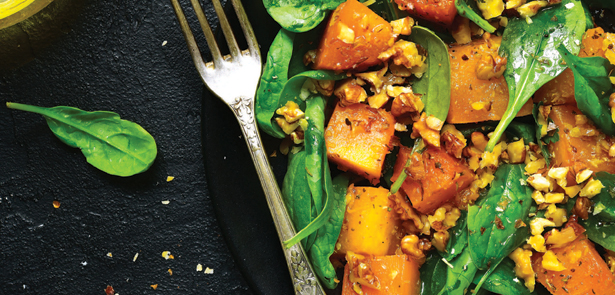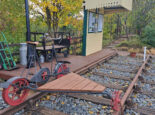Take a bite out of climate change

Small changes to your diet can make a big difference to the environment
Food sustains us, fuels us, inspires and tempts us. But did you know that food accounts for around a fifth of our individual carbon footprints here in the UK? Globally the process of cultivating, growing, harvesting and transporting food causes almost a third of the world’s carbon emissions. By making small changes to our own diets, when combined with other people’s food commitments, we can achieve big reductions and help to slow down the rate of climate change.
New project ‘Cool Food’ has been created to motivate people to make positive choices in the food they eat to help create a healthier planet. Harnessing the knowledge of experts in food, nutrition and the environment, Cool Food works by showing individuals, communities and organisations the real-time impact they can have by working together to reduce carbon emissions. Cool Food is a Franco-British project created under the Interreg France (Channel) England Programme to support the transition to a low-carbon economy.
It addresses the development and adoption of low-carbon technologies in sectors with the highest potential to reduce greenhouse gas emissions. Cool Food has been created by Al’Terre Breizh, the Peterborough-based charity PECT and Cornwall Food Foundation. The Cool Food revolution aims to help at least 1,300 households in the UK and France to make a 20% reduction in their carbon emissions over the course of two years. This could save a massive 153 tonnes of CO2 emissions. That’s the same amount of carbon it would take to drive to the moon and back! It could save people money too. By helping people to reduce their carbon emissions, Cool Food could save households an average of £450 each year.
What is Cool Food?
At the heart of Cool Food is a digital tool, designed to recommend and capture commitments to change food habits. The tool, alongside information and advice, helps users to identify and record the financial and environmental benefits of their changes with the aim of motivating long-term positive behaviour change. You can reduce your carbon footprint in three easy steps: choose your commitments (one or more), measure the impact, and connect with the Cool Food community to get support, hints and tips to help you reach your target. You can use the challenge to ● Introduce vegetarian meals ● Chop your meat portions in half ● Make your own meals ● Introduce dairy-free days ● Stop wasting bread ● Reduce your food waste ● Buy local, seasonal and organic ● Swap soft drinks for water ● Have tea-free days ● Have coffee-free days
Why does it matter?
Carbon dioxide, or CO2, is a gas which occurs naturally when humans and animals breathe out which, in small amounts, causes no harm and is used by plants in photosynthesis. It is also released through land use changes such as deforestation and the burning of fossil fuels including coal, oil and gas. Unfortunately, modern life is generating much more CO2 and other greenhouse gases than would naturally occur and more than the planet’s plants can absorb. CO2e (carbon dioxide equivalent) is the standard unit for measuring carbon footprints and expresses the impact of each different greenhouse gas in terms of the amount of CO2 that would create the same warming.
Other gases incorporated into this measure include methane and nitrous oxide. These gases are forming a layer around the earth and causing the globe to warm up, polar ice to melt and sea levels to rise. This is known as the greenhouse effect. This rise in global temperatures has knock-on effects such as disruption of ecosystems and an increase in the frequency and intensity of extreme weather events. The total amount of emissions that we produce is called our carbon footprint. One way in which we can have a significant positive impact on global warming is to change the food choices we make.
For example, did you know that the average vegetarian meal generates around half the carbon of a meal containing meat? It is reported that we each eat more than 7,000 animals in our lifetime, and our appetite for meat has a significant impact on the environment. Cool Food is encouraging people to make common-sense changes, including buying local food, preventing food waste and reducing the consumption of animal products.
Get involved
If you believe that everybody can make small changes to create a healthier planet, then help to spread the word! Tell your colleagues, customers, group, school or association about Cool Food and show them how to take the challenge. It’s a simple and fun way to show people they can make a big difference by working together with other people in their community.
WASTE NOT, WANT NOT!
Are you looking to reduce your food waste? Commit to cutting back on leftovers and see huge benefits for both the environment and your wallet!
● Shop wisely, use lists and take note of what’s already in your kitchen. Don’t buy on impulse! ● Buy exactly what you need: Get loose produce when you can, which will also help to cut down on packaging. ● Check use-by-dates, only buy what you can use in the available time. ● Share, see what ingredients are available in community fridges, which take surplus food to redistribute to the local community. See www.hubbub.org.uk/the-community-fridge for your nearest location. ● Plan: Plan your weekly meals and use leftovers for lunches. Preserve your leftovers and use weekends to batch-cook and freeze. ● Prepare from scratch: Use every piece of the food you’re cooking with wherever possible. ● Monitor: Check what you throw away to work out what you need to be more careful with when buying next time. ● Measure your portions: Cook only the amount you need. ● Store bread correctly: In a clean, dry place out of direct sunlight so it lasts longer. If you know it usually takes you a while to finish a loaf, freeze half to eat at a later date. ● Reorganise: Move older food to the front of the fridge or freezer and put new products in the back, so you’re more likely to use up the older items first. ● Keep a freezer list: Detail when each item was frozen. This can be used for easy reference when deciding what needs using up. ● Check your fridge: Make sure it’s at a low enough temperature to keep food fresh for as long as possible. ● Compost food scraps: They will rot down into nutrient-rich compost for the garden.
● To find out more, call 01733 568408 or email
Visit www.coolfood.net to sign up for your commitments and to discover events, top tips, advice, and recipes. Plus find the project on Facebook, Twitter and Instagram
















